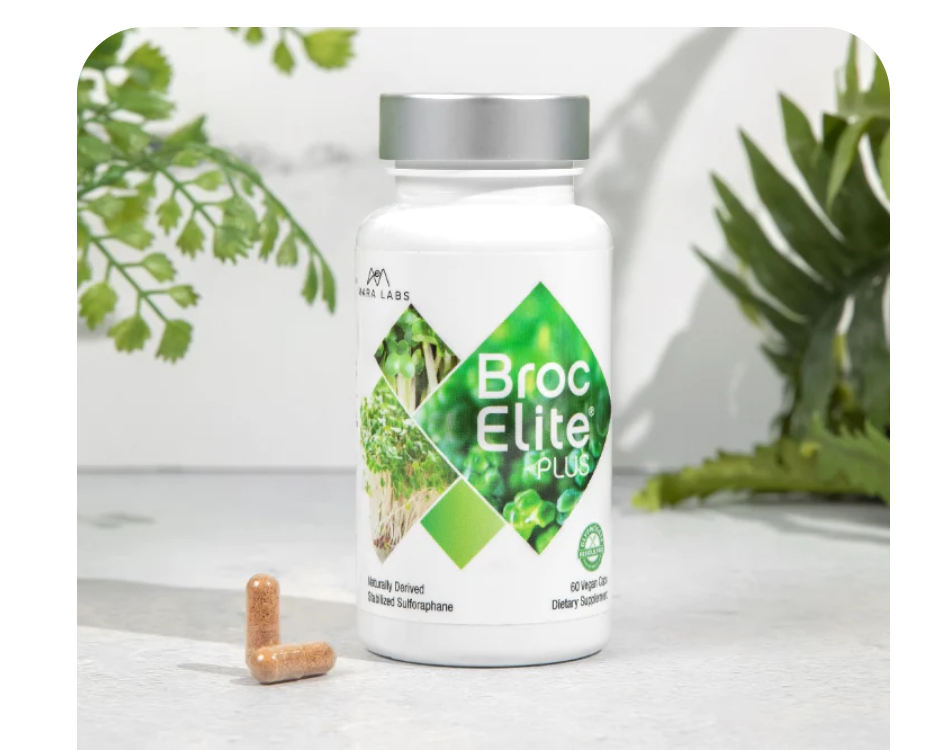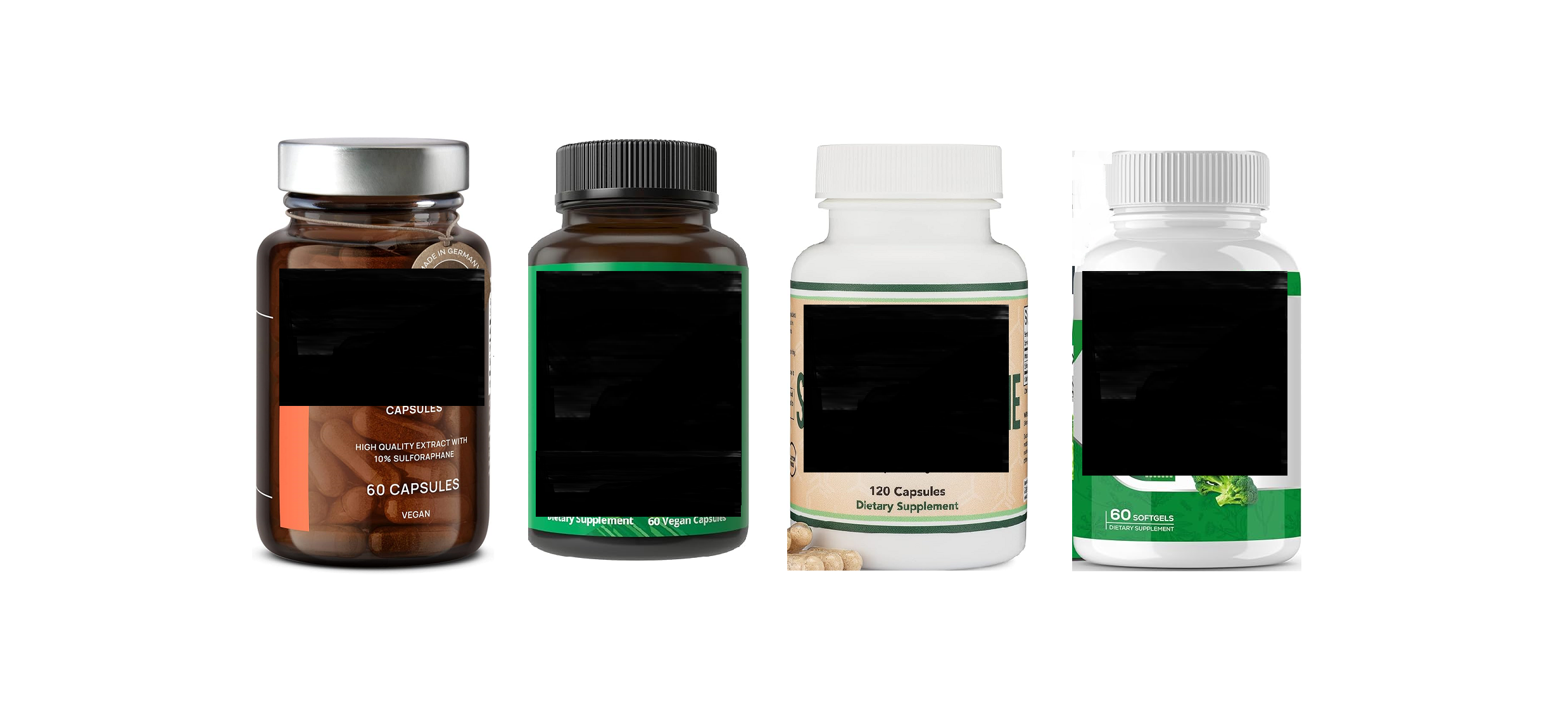If you’re like me and take a lot of supplements, you may wonder what all the funny names under “Other Ingredients” are. And how much of these ingredients are actually in the capsule? Well, these additional ingredients in supplement capsules are known as excipients, which serve various functions such as improving flow, stability, and solubility, or aiding in the manufacturing process.
59% of the capsule is filler
I’ll never forget coming across a popular sleep supplement on Amazon before we made SleepElite. Looking at the capsule, I was confused because it looked large for 250mg. Turned out I was right! When I weighed the powder on our scale, there was 612 mg of powder inside the capsules, as seen in the images below. That means 59% of what’s in the capsule is filler and flow agents!
I mean, you're getting what was on the label, so the sleep part may work just fine. I’m bringing this example up in order to illustrate the disconnect in that more than half of what I was swallowing had no benefit at all. In fact, it could even have some negative effects.
Unfortunately, this is a very common practice in the supplement industry. So, what are these ingredients, and how do they impact our health? Here are some common flow agents and fillers used in supplements:
Flow Agents
- Magnesium Stearate: A commonly used flow agent that helps prevent ingredients from sticking to machinery during the encapsulation process.
- Silicon Dioxide: Also known as silica, it is used to prevent clumping and improve the flow of the powder mix.
- Calcium Silicate: Similar to silicon dioxide, it is used to improve the flow of ingredients.
- Talc: A mineral composed of magnesium, silicon, and oxygen, used as a flow agent in some formulations.
- Stearic Acid: Often used as a flow agent, it also has lubricating properties.
- Microcrystalline Cellulose: A refined wood pulp used as a texturizer and anti-caking agent.
Fillers
- Rice Flour: A common filler used in place of synthetic fillers like talc or magnesium stearate.
- Corn Starch: Used as a filler and also as a thickening agent.
- Gelatin: Often used in the capsule itself, but can also be used as a filler in some formulations.
- Maltodextrin: A polysaccharide used as a filler, often derived from corn, rice, or potato starch.
- Lactose: A sugar derived from milk used as a filler in some supplements.
- Calcium Carbonate: Used as a filler and also to provide calcium in some formulations.
- Cellulose: Plant-based filler used in many natural or vegan supplements.
- Titanium Dioxide: Sometimes used as a filler and also to give a white color to the capsule.
- Sorbitol: A sugar alcohol used as a filler and sweetener.
- Dicalcium Phosphate: Used as a dietary supplement and also as a filler in some preparations.
It's important to note that the use of these agents and fillers can vary depending on the manufacturer and the specific supplement. Some people prefer supplements that minimize or eliminate the use of certain fillers and flow agents due to allergies, dietary restrictions, or personal preferences. Always read the label carefully.
The use of flow agents in supplement capsules is generally considered safe for most people when consumed in amounts typically found in supplements. However, there are some concerns and debates about potential health issues related to certain flow agents. Here's a more detailed look:
Magnesium Stearate
- Concerns: Some critics argue that magnesium stearate can create a biofilm in the gut, potentially affecting nutrient absorption. Others worry about its impact on the immune system.
- Current Understanding: The FDA considers magnesium stearate to be generally recognized as safe (GRAS) when used in food and supplements. Scientific evidence supporting the claims about its negative effects is limited.
Silicon Dioxide (Silica)
- Concerns: Inhalation of silica dust is known to be harmful and can lead to lung issues, but the form used in supplements is generally considered safe for ingestion.
- Current Understanding: Silicon dioxide is also considered GRAS by the FDA. The amounts used in supplements are typically much lower than the amounts that would cause harm.
Calcium Silicate
- Concerns: Similar to silicon dioxide, the primary concerns are related to inhalation rather than ingestion.
- Current Understanding: Generally considered safe when consumed in amounts found in food and supplements.
Talc
- Concerns: Talc has come under scrutiny due to concerns about contamination with asbestos, a known carcinogen. Inhaled talc is also associated with respiratory issues.
- Current Understanding: The talc used in food and pharmaceuticals is supposed to be asbestos-free, but concerns remain. It is less commonly used than other flow agents.
Stearic Acid
- Concerns: Some concerns exist about potential contamination with harmful substances during manufacturing, but these are generally considered minimal risks.
- Current Understanding: Stearic acid is also considered GRAS by the FDA and is commonly found in many foods and supplements.
Microcrystalline Cellulose
- Concerns: Generally considered safe, but some people report digestive discomfort.
- Current Understanding: This is another substance considered GRAS by the FDA. It is widely used and generally considered safe for consumption in the amounts found in supplements.
It’s worth noting that, despite these fillers all being listed as GRAS, individuals with certain health conditions, allergies, or sensitivities may experience adverse reactions to these or other ingredients in supplements. Always consult with a healthcare provider if you have concerns about any supplement ingredients, especially if you have preexisting health conditions or are taking other medications.
Mara Labs products have no fillers
It's also worth noting that Mara Labs products have no fillers or flow agents. We can do this because we perform all our own manufacturing in house, similar to a microbrewery. Most companies use third-party manufacturers who usually choose the fillers and flow agents based on the machines, not the supplement.
We want as much of the ingredient that you’re buying placed into the capsule as possible so that each serving can make a biological difference that you notice. With Mara Labs supplements, have peace of mind and feel the difference!









2 Comment
Thank you for this information, and thank you for producing such trustworthy supplements. I so appreciate your dedication to creating products for sale that are up to the standards you want for yourself.
Dear David,John and Martin,
Thank you for your blogs and podcasts! They always provide me knowledge for my family and I. I pass them along always. GRAS has been a thorn in my side! Deception that potential harms our loved ones.
Another issue I am struggling with is knowing if there are ingredients that may stall or interfere with strict ketosis. Those who take supplements have know idea the nutrition in those supplements. Any suggestions how to count carbs etc. On our supplements. Do you take your products when fasting?